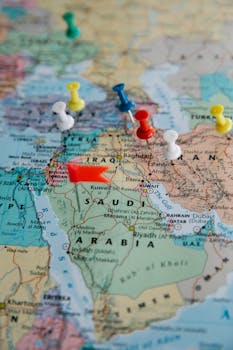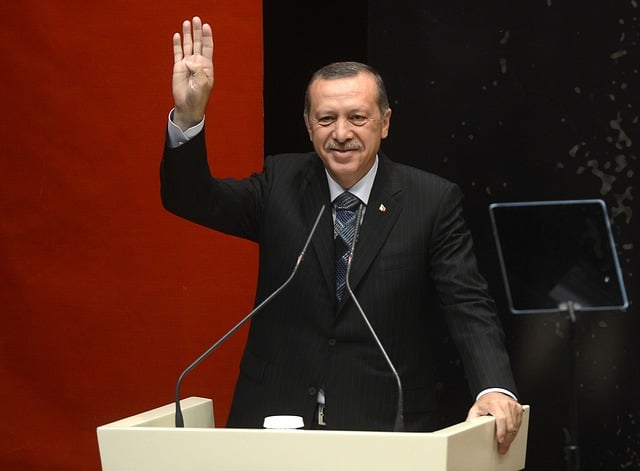Syria’s Assad Falls: A Warning and a Lesson
When the Syrian opposition launched their military operation on November 27th against Assad’s positions in Aleppo and its surroundings, no one expected them to liberate the entire country in just 12 days. Even the most optimistic observers could not have predicted the rapid collapse of the regime’s strongholds. Yet here we are, witnessing one of the fastest military victories in modern times, more akin to a miracle than just a military success. But what does this mean for us? Is it really over? Will Syrians finally enjoy living freely? What lessons can we take away from this? What message is the Syrian revolution sending to other oppressors in the region?
Warning for Syrians

Photo by Ahmed akacha on Pexels
It’s not as if we haven't seen rebels take down the head of the snake before. There are many examples from history, the most recent being Libya. Did Libyans achieve freedom after taking out Ghaddafi? It is important for Syrians to learn from these historical lessons to prevent the same pitfalls that affected other revolutionary movements.
Syria's strategic location connects several regions of significant political importance, making it a frequent target for external interventions. The next step for Syrians should be to clean their house and establish a cohesive leadership to prevent any foreign attempts to reproduce the regime.
Syria is facing the most crucial moment in its modern history. Syria will either be run by another dictator in a new guise, or Syrians will learn from others mistakes and fortify their nation against foreign influence.
Warning for Israel

Photo by Lara Jameson on Pexels
Syria’s revolution serves as a reminder that nothing remains the same. International dynamics shift constantly, often more quickly than we expect. When anti-Assad protests erupted in 2011, major world powers like Russia supported the regime to prevent its collapse. This resulted in a prolonged and devastating war, ultimately squashing the opposition into confined areas alongside their Turkish allies.
After 13 years, global politics have changed, and so did the regime’s backers priorities. Israel should grasp this message clearly, as its existence relies heavily on the US. What will happen when the balance of power shifts? Or when your supporters become preoccupied elsewhere?
The true national security lies in finding common ground with the people of the region and not in using military power to bully them. Israel failed, for over 76 years, to become part of the region due to its expansion policies, anti-Arab stance, and countless atrocities against Palestinians. To lead such a policy in a state that is completely surrounded by Arabs is madness, and I don’t think there is much Israel can do today to rectify the consequences of its past decisions.
One reason Assad fell is that he rejected all peace proposals to resolve the conflict. Turkey made several attempts to persuade the former president to engage in dialogue and find a solution, but Assad dismissed them all. Similarly, Israel has turned down opportunities to adhere to UN resolutions and international law, which could lead to a fate similar to Assad's.
Future Israel-Syria Relations
We have yet to see how future events will unfold on the Golan Heights front. The new Syrian leadership will likely focus on the Golan Heights once they stabilize their country, as this will be crucial for their rule. With Turkish support and Israel’s backed Kurdish militia, this situation becomes even more complicated. This brings to mind a statement by Turkish President Erdogan, who said that Turkey would invade Israel. Back in July of this year, this seemed like a stretch. But today it appears more plausible.
Israel already advanced into Syrian territory this morning and bombed several strategic military installations, which suggests early plans to prevent any potential threat from Syria’s borders.
Sun, December 8, 2024
- Israeli Prime Minister Benjamin Netanyahu visited the border between Israel and Syria. He announced that he has directed the military to take charge of the buffer zone, which covers 155 square miles. This area was established by an agreement in 1974 and previously had United Nations peacekeepers stationed there. Netanyahu remarked, "This is a temporary defensive position until we find a suitable arrangement."
- Israel has struck a scientific research center in Damascus, Syria, linked to the development of chemical weapons and ballistic missiles. The goal of this operation is to prevent important technology from reaching rebel groups.
Mon, December 8, 2024
- Israel carries out large-scale air attacks across Syria, targeting military installations and security facilities.
Mon, December 16, 2024
-
Israeli airstrikes have intensified, with reports indicating that the majority of military sites in Syria have been destroyed. Meanwhile, Russia is withdrawing its troops from Syria.
Wed, January 8, 2025
-
A report from an Israeli government commission has classified Turkey and the new Syrian government as posing a bigger threat than Iran.
Historic moments as Syrians celebrate the fall of the regime
Footage captures crucial moments in the final hours before the fall of Assad. These images will be deeply engraved in our memories for generations.
Read more:
